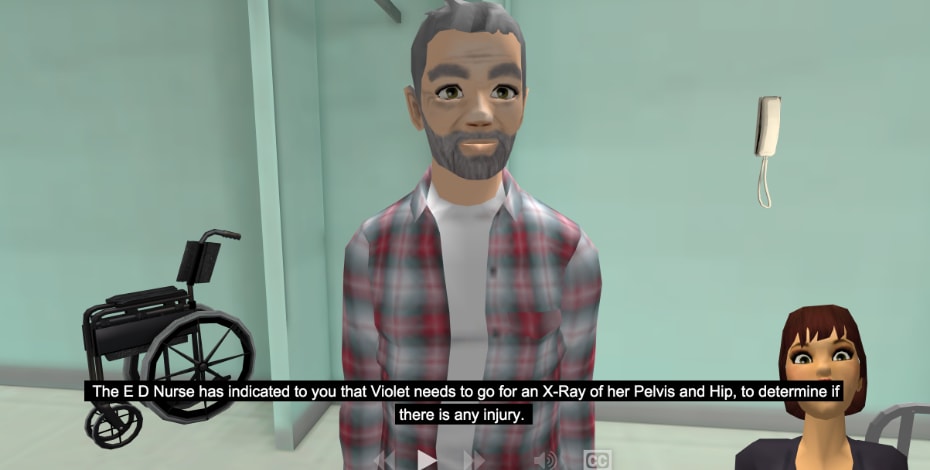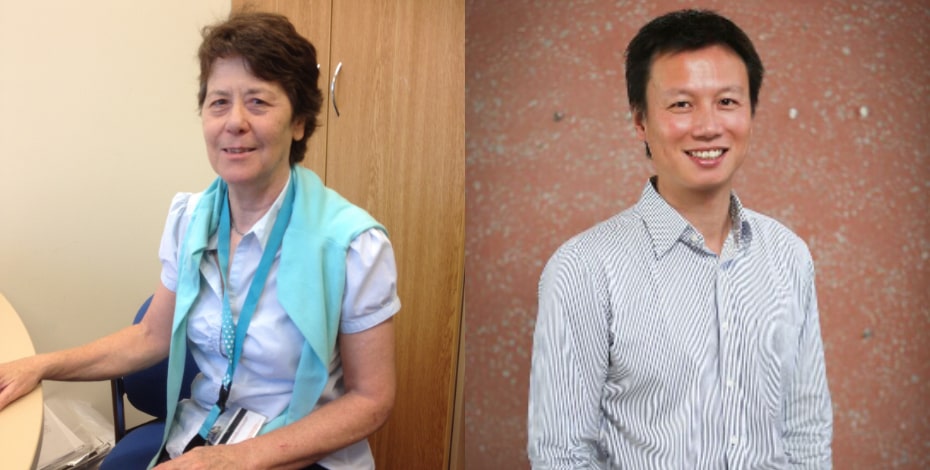
Tapping into student behaviour

Two educators are taking to playing games in class as a way to engage their students. It is not that they have ditched learning from books and past experience, but rather seeking and employing new ways of teaching to stay in step with the way millennial students consume information.
Senior lecturers from the School of Physiotherapy and Exercise Science at Curtin University, Dr Leo Ng, APAM, and Anne Furness, APAM, are the innovative educators behind the creation of interactive virtual reality games for education purposes. It is a push–pull arrangement, in which they get to educate and encourage learning while their students take on valuable skills through thinking and repetitive actions while being entertained.
The games provide a 3D immersive learning activity for students by simulating regular tasks of health professionals: Leo’s, a physiotherapist undertaking a practical patient examination and Anne’s—the Virtual Home Visit (VHV)—a physiotherapist conducting home visits for the older adult.
Their approach puts fun into learning while helping students prepare mentally and physically for physiotherapy tasks. The games also offer potentially cost-effective solutions to ongoing training of students requiring practical teaching at university and in clinical environments.
‘This authentic learning experience means students can apply the whole knowledge and training cycle involved in conducting home visits,’ says Anne, who is the university’s Director of Teaching and Learning. ‘The student is required to gather information from the avatars and the environment during the virtual home visit. They can then use this information to formulate a falls risk management plan for the client and write appropriate letters of referral, as would be required in the real world.’

Anne Furness and Leo Ng.
Serious gaming, or objective structured clinical examinations, while already employed in paramedicine and medical and nursing schools to enable the learner to carry out tasks in a safe environment, is still very new in teaching physiotherapy, says Leo, who uses the game to teach his first-year students. ‘The benefit is not just entertainment as it also teaches by engaging students. We tell our first-year students that it doesn’t replicate the hands-on experience required in examining a patient, but rather the simulation provides an experience, which is a supplement that cannot replace our teaching or their physical practice for learning,’ he says.
Adds Anne: ‘it’s a serious game, primarily orientated to providing a learning and training experience [that] also provides real-world experiences that may not be possible due to availability of resources, costs etc. The serious game creates an active learning experience where the student interacts with the environment and the avatars and so participates in exploratory learning and gains appropriate feedback about their skills.’
With extensive clinical experience, Anne has been involved in the education of physiotherapists for more than 30 years. Her team at Curtin collaborated with eLearning developer LearnBrite to develop VHV and it won a teaching and learning award at the recent Curtin Commercial Innovation Awards. VHV is delivered to students undertaking the undergraduate physiotherapy course at Curtin University, University of South Australia and the graduate-entry Master of Occupational Therapy. She says it is designed to help educators and students keep pace with a rapid increase in treating an aged population.
‘It is important to provide experiences and practice in using technology as it is an integral part of how we work and live, every day. The serious game requires students to have an experience where they need to discover the processes for the game, a skill they will need for the future.’
The games can be accessed via phone, tablet and computer, which means they can be delivered on demand to learners so that they can practise their skills anywhere, anytime, and learn at their own speed.
In researching strategies to improve teaching and learning in the tertiary education sector, Leo has taught at Curtin University for more than 10 years, and says today’s students are ‘more tech savvy’ in the way they consume knowledge and approach daily life. ‘One of the things I see is that for our students, very smart as they are, [they] don’t have experience with practical examinations. So, when they go into a practical exam for physiotherapy and do physical skills, right in front of the lecturer, a lot of them get stressed and anxious and that affects their performance.
‘If you asked them about knowledge on how to transfer a patient to a wheelchair they could tell you, but in front of someone they don’t know, or in a room they are not familiar with, they get stressed. So, I thought what can
we do to help them understand what it is like “being” in an examination room,’ he says.
Leo credits his honours student Peter Edwards for helping bring his game to reality. ‘I had the idea but he learnt programming and, along with input from Curtin HIVE [Hub for Immersive Visualisation and eResearch], created the game. Peter loves teaching and can also see that we need to be adaptive in our teaching methods. Technology will not replace what we do, but it can help us innovate and give us valuable data to improve what we do,’ Leo says. ‘It is very exciting.’ Future plans for his game would see its background be more reflective of a hospital environment, complete with nurses, doctors and noise. ‘Again, we want to use different ways to prepare students for the real world.’
Anne’s is also being modified and will be delivered to community support workers and coordinators employed by Multiple Sclerosis Society of WA in coming weeks. With projections suggesting a rapid increase of people aged 65 years and over in the next 50 years—‘in the order of a 200 per cent increase by 2061’—educators need to be agile, Anne says.
‘We know that generally people are keen to remain living in their homes for as long as possible, so we must engage our students to ensure they will be part of the trained staff who will deliver future home-based aged care. The challenge is to provide cost-effective engaging learning activities. The cost of training is in the millions and will continue to go up with the ageing population. ‘
Training physiotherapy students about clinical experiences provides them with an authentic learning experience that they would otherwise not get,’ she says.
Getting ahead with gaming
Anne’s tips on why gaming is important to learning:
- you can use technology
- it encourages self-directed learning
- it adds interest to the learning of information that is not particularly perceived as important to the learner (the ageing population) and so it can be turned into an engaging learning activity
- it facilitates peer learning and collaboration
- it prepares students for the real world.
© Copyright 2024 by Australian Physiotherapy Association. All rights reserved.





